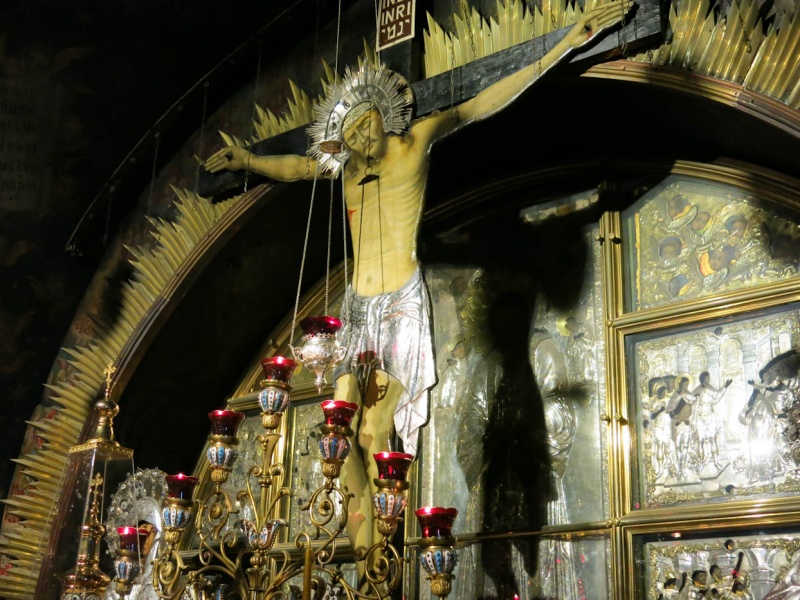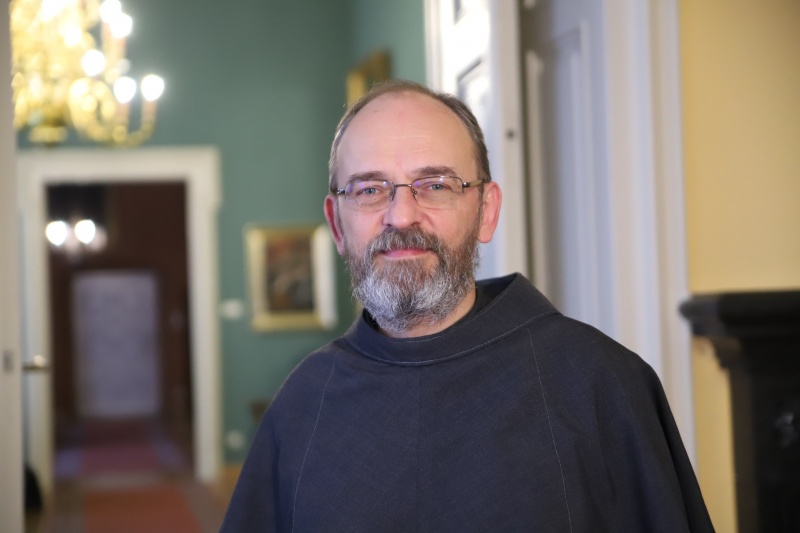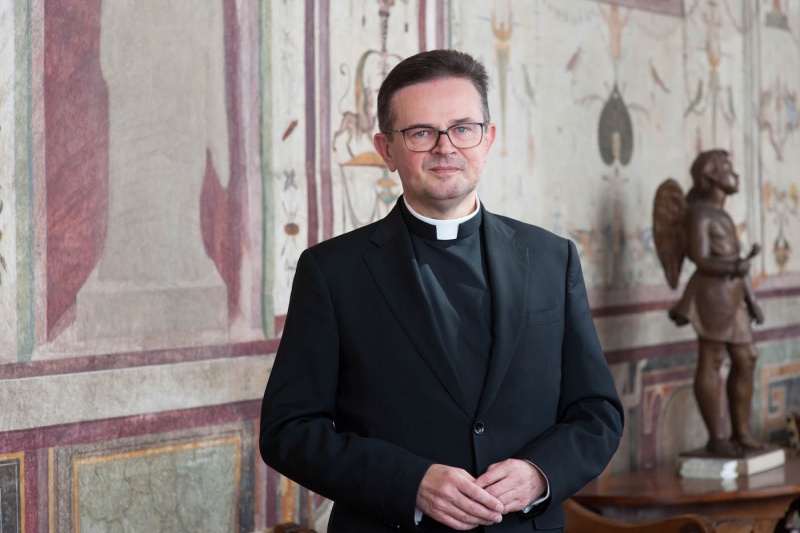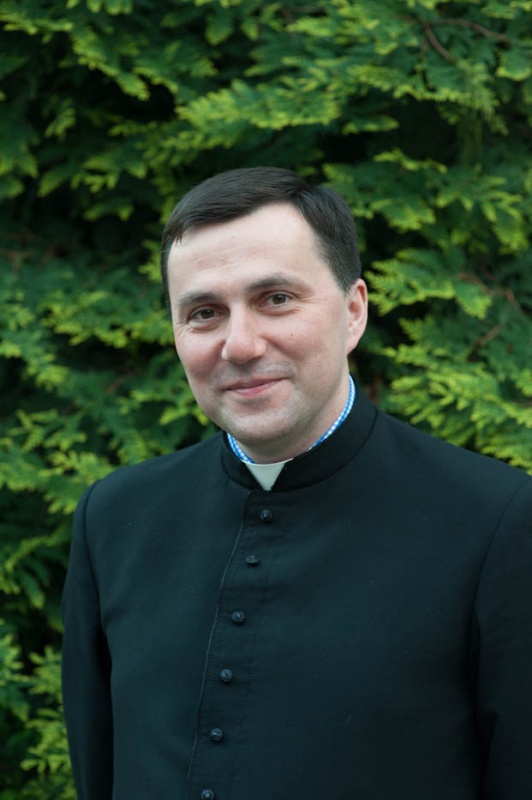
This year's Easter and the preceding Holy Week will certainly be completely different than any we have known so far. There are those who don't even want to think about Easter. Used to spending it in a large group, surrounded by family, at a lavishly set table, they don't want to plan anything "because this won't be like Easter at all". Others feel lost when faced with the inability to participate in church rituals, sometimes – as in some countries – deprived of access to the sacrament of Penance and Holy Communion. There are also those who will be fighting an illness or mourning the death of a loved one during Holy Week. This year, housewives started their Easter preparations late and without the usual blarney. Sadness, uncertainty and fear are in the air. Will it be possible to truly experience this Easter? This question is answered by three pastors who serve their communities in Poland, Hungary and Italy on a daily basis.
THERE WILL BE AN EASTER
"Maybe it sounds a little comical, but the first thing I want to emphasise is not to tell myself that there will be no Easter. Easter will come, however because of circumstances, for the first time many of us will experience it differently." – says Fr Bogusław Wolański, parson of the St Joseph the Spouse parish in Olszyna. Fr Pawel Ptasznik, rector of the St. Stanislaus the Bishop Martyr church in Rome and pastor of Polish emigration in this city stresses: "In recent months our daily life and social functioning have been shaped by information about the spread of the epidemic and by experiencing its consequences. There is a danger that an awful lot of bad news will lock us in fear for ourselves, for our loved ones, for the fate of the world... The feeling of uncertainty of tomorrow can be shocking. This is the psychological and social context of the upcoming Paschal Triduum and Easter. For Christians, this is a special time when other news and other experiences resound particularly strongly. This is the news of the Resurrection, that Christ, God's Son, experienced suffering and death, and overcame it. The Triduum and Easter serve to make the news of the Resurrection by faith an experience, a personal experience that brings certainty of the presence of God, Lord and Giver of life, in our reality. This experience gives hope in the worst of trials."

O. Paweł Cebula
Father Paul Cebula, OFM Conv., parish priest of St. Anthony Parish in Eger, refers to the pastoral letter sent to the faithful by the Ordinary of the Diocese of Mukachevo in the Carpathian Mountains: "Bishop Antal Majnek OFM reminded us how different holidays, every Sunday and every day were experienced in the Soviet Union without priests for decades of communism. People were deprived of any sacramental ministry, and yet they were looking for Jesus, they wanted Him and did not give in to slavery. The outwardly enslaved were internally free because they had Christ in their hearts, because they trusted Him. People in the West did not have such an experience. We were also told by priests in Poland during communism that we did not appreciate Mass because it is so easily accessible. I think that God allows such a situation to come to pass today, among other things, so that we can miss Him, because He misses us very much. "Many parishioners tell me they miss the church. - adds Fr Wolanski - It is known that this year we will not celebrate as we are used to. We can't go to church, we can't attend masses, we won't follow a certain tradition. We have the opportunity to experience this time differently and I deeply believe that this is what Jesus wants from us. It is necessary to break certain patterns to which we have become accustomed and meet the risen Jesus in the houses and in God's Word, for the Lord speaks to us constantly and His Word is alive. Fr Cebula encourages to say the rosary, to ponder the Word of God: "I think that the simplest forms are often the most appropriate - the rosary is nothing more than meditating on the Gospel. You can take the Scriptures, reach for the Psalms. Psalms in themselves are prayers in which every state of mind is expressed and every life situation is described. I walk around the house and say the rosary. I'm on my way with the Lord Jesus, and Jesus is with me. Just like one of the anthems in the breviary says: "You walk with us, Lord on the stony road of life. You are with us in the dark because we live in great uncertainty about what will be. But it is up to us, in freedom, to decide whether we will be crushed by uncertainty and hopelessness or whether we will say with confidence, Lord, I entrust my spirit into your hands." Fr. Ptasznik concludes: "Perhaps it would be good to keep interest about the virus's expansion down to a necessary minimum, and to focus more on the news of the saving work of Jesus Christ, which already took place but continues to this day. Perhaps it would be a good idea to devote some more time to reading and meditating on the Scriptures, especially the stories of the Passion and Resurrection. The Triduum's liturgical texts can also be easily found on the Internet and pause over them, preparing for spiritual participation in the rituals transmitted by the media. This can help us to experience deeply the liturgical and sacramental experience of this mystery, even though we will not be able to participate personally in the rituals held in the churches. You can also go through the stations of the Way of the Cross, sing Bitter Sorrows, pray the Rosary or the Chaplet of The Divine Mercy... If, in sincere, simple prayer, we are able to integrate our own fears and sufferings into Christ's suffering, it may turn out that during this difficult time we will experience the Paschal Triduum more deeply than usual...".

ks Paweł Ptasznik
RETURN OF THE HOME CHURCH
Now that we are unable to attend masses and services in our churches, it is time for the home church to make a comeback It is there and only within their scope that we will be celebrating Easter this year. "Already in the first centuries of Christianity, the family was referred to as the "home church." The Second Vatican Council recalled this. The Catechism of the Catholic Church explains that this term derives from the conviction that Christian families should naturally be the focal points of faith in which parents, by word and example, pass on this gift to their children and nurture their personal vocation". – says Fr. Paweł Ptasznik. Fr. Bogusław Wolański adds: "To form a home church is to discover that parents as a result of baptism and their marriage, are priests, prophets and witnesses for their children, and not just sponsors of gadget or those who put food on the table. There is a priest in every home – a parent who introduces a child into the living with God sphere. There is a prophet in every home – a parent who teaches a child to pray, introduces them to the Word of God, shows the way. And a parent is also a witness." "Taking away all our outward habits can help us to go deeper to seek the essence of Easter. This holiday is a chance to meet Jesus in my heart, in the sacrament of marriage or in my family. It is known that in every family there will be difficulties and quarrels, but if there are moments when we stand together before Jesus, then forgiveness and reconciliation also occur. - says Fr. Paul Cebula - I know a family which, regardless of the circumstances, gathers every evening on the rosary and after its life, not free from problems, you can see what strength it is.

ks Bogusław Wolański
COPING WITH LONELINESS
"Today, by the fact of being isolated and being banned from leaving, we all become somehow lonely. - says Fr. Wolanski - With the vicar priest and the priest who lives in the United States and comes from our parish, every day we prepare a program called "Parish Daily Life", which consists of reading the Gospel and a short but heartfelt and valuable commentary, every day prepared by another of our three. We do not link to other preachers or speakers on the parish website of, but we want to preach the Word of God in the homes of our parishioners. We reach a large number of people who appreciate this form of communication. This isolation will make people miss live meetings. Maybe they were gone, maybe they were abandoned more than once, now all that's left is a computer screen and the longing for a community. For me this time is a great goodness, a great blessing from God."
Fr Paweł Cebula, who lives alone at the beautiful Baroque St. Anthony church, tells us how trusting prayer is of great value during isolation: "I think that what the heart desires is most important St. Augustine says that desire in itself is prayer. In human terms, I am lonely because I am alone, but I don't feel lonely because I can still talk to Jesus - not only talk to him, but also listen to what he wants to tell me."
"Loneliness at this time is a particularly touching feeling. In particular, the inability to accompany a loved one to the dying person, or the awareness of leaving without the possibility to say goodbye to the loved ones, fills with great pain. Unfortunately, in the face of these situations, all that remains is to accompany you in prayer. – Fr Pawel Ptasznik shares his reflection – For lonely people, especially the elderly, staying at home, above all need kind interest, the willingness to ask about the state of health, about everyday needs. This should be followed by commitment – with all due care – and willingness to help as much as possible. Of course, this usually requires giving up one's own peace, time, sometimes money... Thank God many people make this effort, either alone or as part of various forms of volunteering. And even if responsibilities do not allow for personal involvement, we can always materially support those who can devote their time and effort by contributing as much as we can to a proven charity. It takes empathy, the ability to put yourself in the situation of a needy, lonely person. Then we will see concrete possibilities for our own action." Fr Bogusław Wolański also stresses the need for empathy: "You can text, deliver a newspaper to the door, do some shopping for someone who might actually be very lonely because he's in quarantine, or is infected. Two streets from the rectory, there's a lady who's infected with COVID-19. I didn't have her phone number, so I gave her an assurance through my friends that she is in my heart, that I pray for her, that she is very close to me. I know that this lady appreciated that I thought of her that way."
***
"This is a retreat and we don't know how many months it'll last. This is a very special Pascha, but I believe the Lord Jesus will guide us through it." - claims Fr. Paweł Cebula.
It is up to each of us to choose whether we will treat the circumstances in which we will celebrate Easter this year only as a tribute to God or as a chance from God to reflect, deepen our faith, strengthen the bonds in the family, parish and local community. Maybe we will learn to enjoy again what we thought was so every day, so obvious, so accessible? For example, the sound of church bells announcing the Resurrection: "I think that when a man in his heart realizes that Christ is risen from the dead, he will even appreciate these beating bells. - says Fr Bogusław Wolanski - Recently a lady from a nearby town, which I preside over as dean, called me and said: Father, make the bells ring again in our village. Because we're sitting in the houses, the priest must have turned them off, and for us it's as if life had died. The sound of the bells is a sign that life continues: the church is empty, but the Church – the community lives."
Marta Dzbeńska-Karpińska
Zdjęcia: Marta Dzbeńska-Karpińska, Joanna Adamik (Archidiecezja Krakowska), Unsplash
